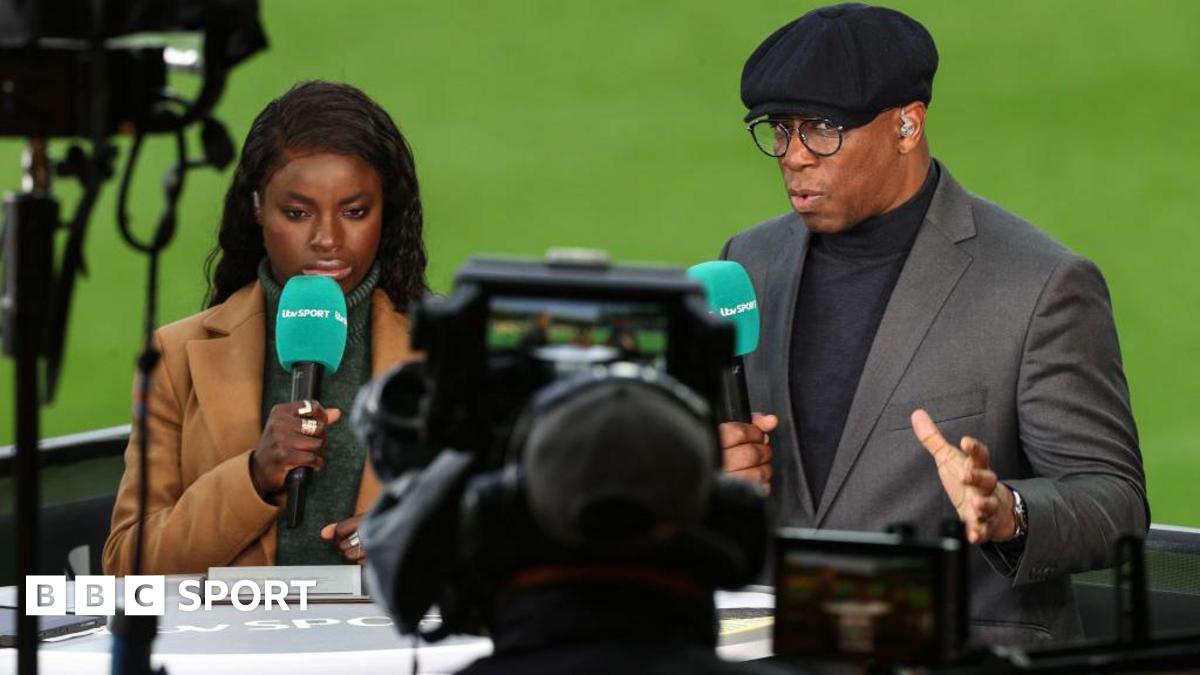Eni Aluko: The Persistent Barriers Faced by Women in Football Punditry
Eni Aluko, a former England international footballer, has once again highlighted the systemic challenges women face in accessing high-profile roles within football punditry. Her outspoken criticism, accusing male pundits of actively blocking female voices, reignites a crucial conversation about gender inequality within the industry. This isn't just about equal representation; it's about a lack of diverse perspectives hindering the quality and comprehensiveness of football analysis.
The Aluko Argument: More Than Just Numbers
Aluko's claims aren't merely about achieving numerical parity. While the underrepresentation of women in football punditry is undeniable, her argument focuses on a deeper issue: the active exclusion and marginalization of female voices. She points to a lack of opportunities, unequal treatment, and a perceived bias that prioritizes male opinions, even when those opinions are less insightful or informed. This isn't about replacing male pundits; it's about creating space for diverse viewpoints that enrich the discourse.
- Lack of Opportunities: Many women with the requisite expertise and experience struggle to secure regular positions on prominent football broadcasting panels.
- Unequal Treatment: Allegations of sexism and microaggressions within the workplace hinder the progress of female pundits.
- Bias in Selection: A perceived preference for male voices, even when women are equally qualified or more knowledgeable, creates a structural barrier.
The Broader Context: Gender Inequality in Sports Media
Aluko's experience is unfortunately representative of a wider problem within sports media. Across various disciplines, women are significantly underrepresented in commentary, analysis, and managerial positions. This disparity isn't simply a matter of tradition; it reflects entrenched biases and power structures that favor men.
- Pay Inequality: Women in sports media often earn less than their male counterparts, even when performing similar roles.
- Limited Visibility: Women's sports often receive less media coverage than men's sports, creating a self-perpetuating cycle of underrepresentation.
- Lack of Mentorship: A lack of established female role models within the industry can make it harder for aspiring female pundits to break through.
The Path Forward: Promoting Inclusivity and Diversity
Addressing the issue requires a multi-pronged approach that tackles both the systemic and individual biases contributing to the problem.
- Active Recruitment and Promotion: Broadcasting companies need to implement proactive policies to recruit and promote female talent.
- Mentorship Programs: Establishing mentorship programs can provide valuable guidance and support for aspiring female pundits.
- Addressing Implicit Bias: Training programs aimed at identifying and overcoming unconscious biases within the industry are crucial.
- Audience Demand: Viewers can play a part by actively supporting and promoting female pundits and demanding more diverse representation.
Conclusion: A Fight for Better Football Analysis
Eni Aluko's fight isn't just about her own career; it's a fight for a better, more inclusive, and more representative football punditry landscape. Her persistence in highlighting this issue is vital for forcing a crucial conversation and paving the way for a more equitable future. The lack of diverse voices isn't just unfair; it impoverishes the quality of analysis and prevents the sport from reaching its full potential. The time for change is now.
Keywords: Eni Aluko, Women in Football, Football Punditry, Gender Inequality, Sports Media, Female Representation, Inclusivity, Diversity, Bias, Sexism, Media Bias, Equal Opportunities
(Note: This article could be further enhanced by including specific examples of Aluko's statements, links to relevant news articles and interviews, and statistics on gender representation in football punditry.)

